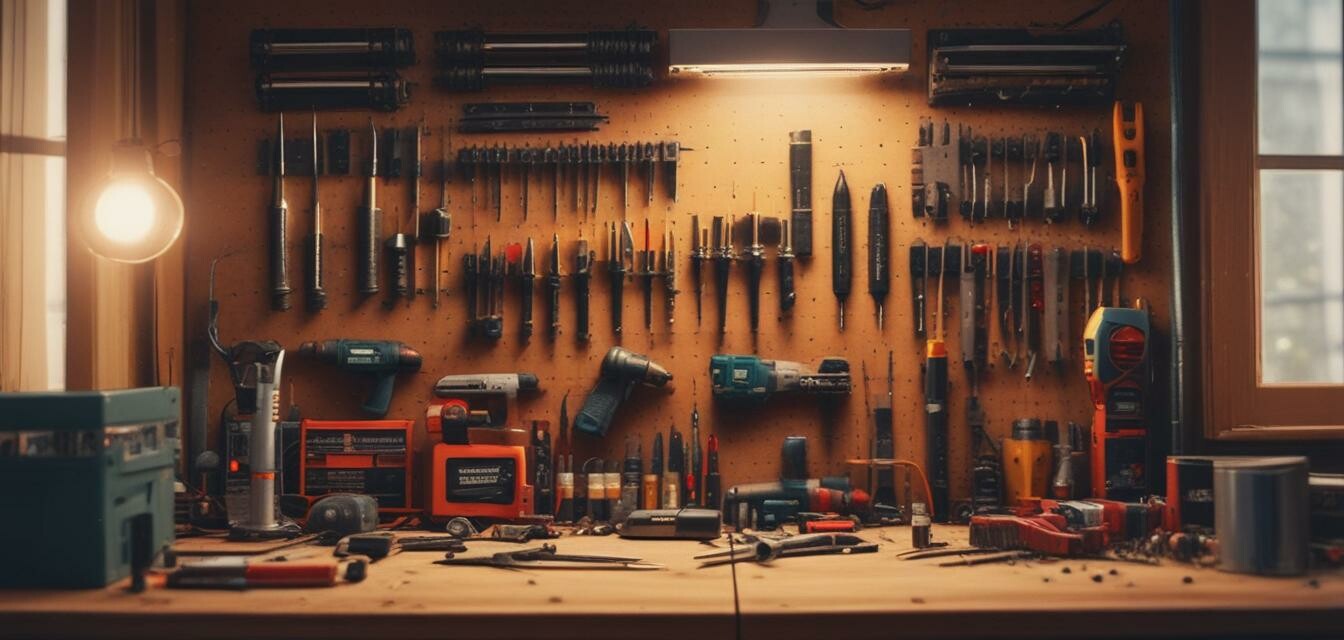
DIY Electrical Work: Tools You Need
Key Takeaways
- Understanding essential tools for DIY electrical work increases safety.
- Proper use of tools enhances efficiency and effectiveness in projects.
- Always prioritize safety by wearing protective gear.
- Familiarity with basic electrical theory is beneficial.
Embarking on DIY electrical work at home can not only save you money but also give you a sense of accomplishment. However, it’s crucial to have the right tools to ensure your projects are completed safely and effectively. This guide will provide you with essential tools needed for basic electrical work, along with some helpful tips and best practices.
Essential tools for electrical work
Here’s a list of the fundamental tools you’ll need to tackle a variety of electrical tasks:
| Tool | Purpose |
|---|---|
| Cordless drill | For drilling holes and driving screws; great mobility for electrical installations. |
| Multimeter | To measure voltage, current, and resistance; essential for troubleshooting. |
| Wire strippers | Used to strip insulation from wires for proper connections. |
| Voltage tester | Helps check if wires are live or not; crucial for safety. |
| Insulated screwdrivers | To work on electrical components safely without risk of shock. |
| Fish tape | For running wire through walls or across ceilings. |
Safety equipment
Proper safety gear is as important as the tools themselves when doing electrical work:
- Safety glasses to protect your eyes
- Rubber gloves to ensure electrical insulation
- Hearing protection if working with loud tools
- Hard hats when working in overhead areas
Tips for beginners
- Always turn off the power at the breaker before starting any job.
- Take the time to read user manuals for your tools.
- Practice using tools in a safe environment before tackling bigger projects.
- Consult wiring diagrams when working with existing electrical systems.
- Keep your workspace organized to avoid accidents.
Best practices for DIY electrical work
To carry out electrical tasks safely and effectively, follow these best practices:
- Plan your project thoroughly before starting.
- Check local code requirements for electrical work.
- Use the right tool for each job to ensure efficiency.
- Test tools regularly to ensure they are functioning properly.
- Document your project steps to maintain records.
Pros
- Cost savings on electrical repairs.
- Ability to customize home projects.
- Improved understanding of household electrical systems.
Cons
- Risk of injury if safety precautions are not followed.
- Possibility of violations of local building codes.
- Complex projects may require professional help.
Conclusion
DIY electrical work can be daunting, but with the right tools and knowledge, you can approach projects with confidence. Always prioritize safety, familiarize yourself with the tools, and consider consulting with professionals when necessary. For more information on different power tools, check our Buying Guides or explore our Cordless Drills for some great options to add to your toolkit.
